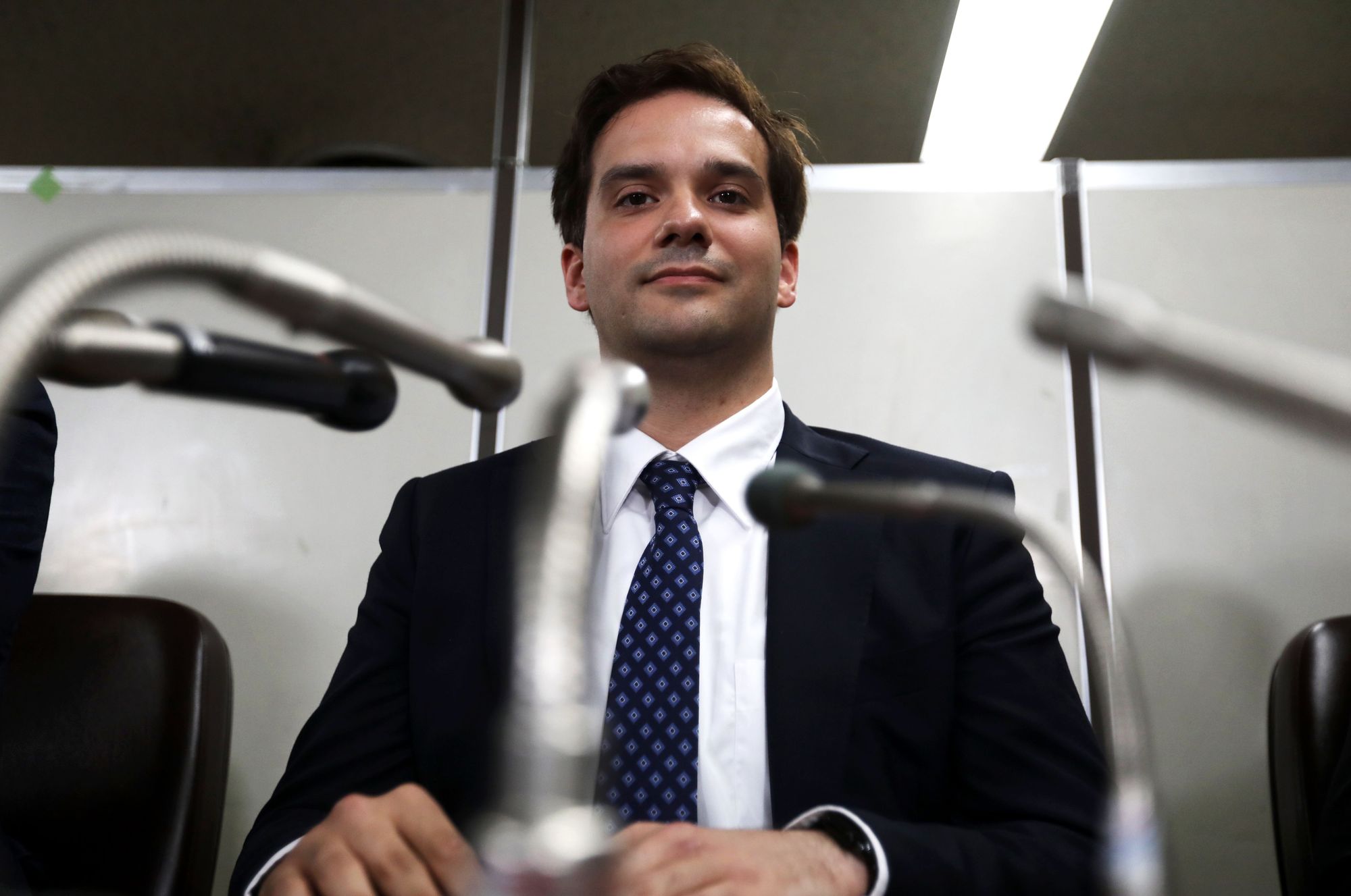Illinois Judge Blocks Mt Gox CEO’s Bid to Weasle out of Bitcoin Trader Lawsuit

An Illinois judge thwarted yet another attempt from Mark Karpeles to weasle out of a lawsuit brought against him by former Mt. Gox bitcoin traders. | Source: AP Photo Shizuo Kambayashi
For Mark Karpeles, the former CEO of the shuttered Mt. Gox bitcoin exchange, the hits just keep on coming, this time from more than 6,000 miles away. An Illinois court in a Memorandum Opinion and Order issued on March 12 has denied Karpeles the chance to make a class action complaint in which he is named as a defendant go away, despite the fact that the infamous cryptocurrency exchange was based in Tokyo.
Judge Gary Feinerman ruled that the class action complaint, which was introduced by former customers of Mt. Gox who claim they suffered financial losses, was within the proper jurisdiction and therefore won’t be dismissed. The latest blow by the Illinois Northern District Court comes as Karpeles awaits his fate from a Tokyo court whose ruling on embezzlement charges lodged against the disgraced executive is expected in the coming days.
Writing Was on Wall for Disgraced Bitcoin Exchange CEO
Karpeles may have seen this coming, as earlier this year the court advised the parties involved in the complaint to “proceed on the assumption that Defendant Karpeles’s motion to dismiss will be denied.” The former Mt. Gox CEO had argued that the Illinois court lacked personal jurisdiction over the allegations against him. Plaintiffs Gregory Greene and Anthony Motto are both Illinois residents.
Mt. Gox, which rocked the industry when it filed for bankruptcy in 2014, was domiciled in Japan, which is where the “alleged wrongful conduct took place,” according to the defense team . The exchange was neither registered nor did it have any offices in Illinois. In fact, Karpeles had never even set foot in the state. Karpeles maintained that he did not personally engage with them in their communication with the exchange despite the plaintiffs’ claims otherwise.
Not so fast, says the judge to the defendant.
“Although neither Karpeles nor Mt. Gox directed advertising specifically toward Illinois or even the United States, users could view information touting the exchange’s sophistication and security on Mt. Gox’s website. Greene and Motto, both Illinois residents, relied on those representations when they created their Mt. Gox accounts in 2012 and early 2014, respectively,” according to the ruling .
In fact, out of nearly half-a-million addresses tied to Mt. Gox accounts, more than 7,000 or approximately 1.5% of them originated in Illinois. It was Mt. Gox’s “virtual presence” in the state of Illinois that prove the plaintiffs’ “contacts with the exchange were not random, isolated, or
fortuitous.” The ruling explains:
“Even if the Illinois market was “simply one among many, a place of no particular interest to [him],” Karpeles “purposefully availed [him]self” of that market by operating an exchange that generated thousands of Illinois accounts and by purporting to safeguard the assets of Greene, Motto, and the other Illinois users.”
Karpeles Prohibited from Leaving Japan

Plaintiff Greene, in particular, had complained to Mt. Gox as early as 2013 after experiencing delays while trying to withdraw bitcoins, which Karpeles allegedly maintained was a function of user backlog. Greene even proceeded to attempt to deposit $1,000 into his account from an Illinois bank, which never arrived.
Soon after, withdrawals were suspended after it became evident the cryptocurrency exchange was hacked, and bitcoins were stolen. While an isolated event, this debacle does provide some insight into why some banks are hesitant to operate in this space.
Meanwhile, as a result of the criminal proceedings unfolding in Japan, Karpeles is currently prohibited from leaving the country.
Read the full ruling below:
Karpeles March 12 Ruling by on Scribd